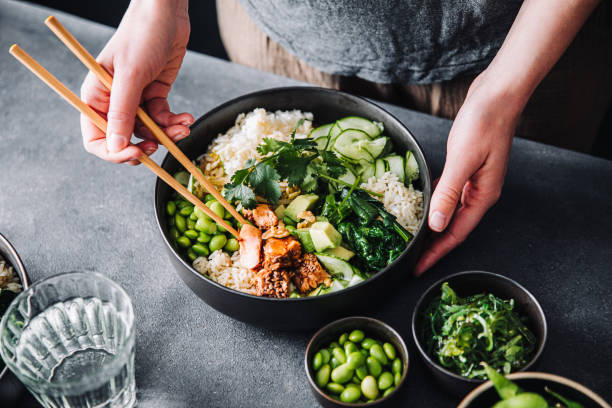For most people, the basic formula for building muscles is to go with the right diet and exercise regime. You eat a lot of meat for the protein, and then you can lift weights to convert the protein into muscle. You can even find a good gym like Chuze Fitness that offers extremely affordable membership fees.
But what about vegetarians and vegans? For these people, animal meat sources aren’t allowed, but those are often the best dietary sources of protein. Vegans have an even more restrictive set of dietary requirements, since the banned food items include dairy items like cheese and eggs, and those are also excellent sources of protein.
The good news is that there are still quite a few vegetables you can eat if you’re a vegan in need of plenty of protein. It’s not even about consuming enough protein to build muscles. You need a daily minimum of 0.8 grams of protein for every kilogram of your body weight. That’s about 7 grams of protein for every 20 pounds you weigh.
So, if you weigh the average of 81 kilograms, that means you need to consume 64.8 grams of protein each day. That may appear a bit daunting to achieve, but it’s doable with the following veggies:
1. Edamame
This is cooked soybeans in convenient bite-sized pieces. You get 9 grams of protein for each ½ cup of edamame, which you can boil, roast, or even pureed into a dip. You also get calcium, fiber, iron, folate, and even vitamin C.
2. White Beans
These are also called cannellini beans, and each ½ cup of cooked white beans gives you 8 grams of protein. You also enjoy some essential nutrients like iron, folate, and copper, plus antioxidants that are good for your heart.
These beans are earthy and creamy, and you can add them to your salads. Also, try them with stews and soups based on tomato or squash.
3. Black Beans
Half a cup of cooked black beans also gets you 8 grams of protein. In fact, they’re also nutritious and filling since you also get carbs and fiber. They contain plenty of essential minerals like zinc, copper, manganese, magnesium, and calcium.
They taste great when you add them to your chili and tacos. You can even make some black bean hummus.
4. Lentils
These are famous for containing surprisingly high levels of fiber, iron, folate, and potassium. And you also get 8 grams of protein per ½ cup of lentils, which is why they’re great alternatives to meat for vegetarians and vegans. Lentils can also be added to lots of different dishes, such as soups, salads, and casseroles.
5. Pinto Beans
Each ½ cup of pinto beans gives you 7 grams of protein. But that’s not all. A single cup (that’s 14g of protein) also provides you with 28% of your recommended daily value for vitamin B1, and this helps the body convert your food into energy. It also provides 20% of your RDV for iron.
You can add these nutty and earthy pinto beans into your Mexican pozole, or you can just go with rice and beans.
6. Chickpeas
These chickpeas are popular among quite a few vegetarians, and not just because a ½ cup of chickpeas gets you 7 grams of protein. They contain lots of fiber that help with digestion, plus you also get iron, folate, and phosphorus.
You can turn these chickpeas into a veggie burger, add some crisped chickpeas onto your salad. You can also serve chickpeas in a nice, creamy curry.
7. Soybean Sprouts
These are usually consumed raw, and half a cup gets you 5 grams of protein. In addition, you get substantial amounts of vitamins A, C, and K, along with B1 vitamins like folate, thiamin, riboflavin, and niacin. They’re great as toppings for your veggie bowl, or for your soup.
8. Lima Beans
These offer 5 grams of protein for every ½ cup. But you also get lots of potassium and iron, and a huge amount of fiber at 9 grams. While you can eat lima beans on their own, they’re also great for succotash.
Final Words
There’s an ongoing debate as to whether vegetarians and vegans need protein powder to get their needed daily protein. But with these veggies, you may not need protein shakes at all!
